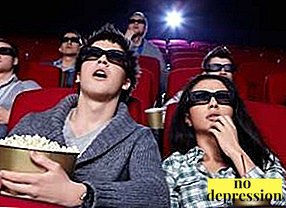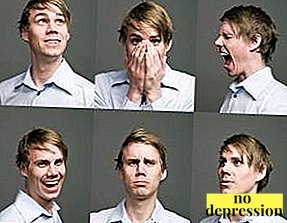One of the most popular coaching tools is a strategic session. For what tasks should it be used? Is it possible to conduct a strategic session independently, or only with the help of a specialist? How to find a moderator? What is necessary for successful implementation? What is the approximate duration of a strategic session and how many times should it be held? And, in general, is it possible to do without it? Let's try to objectively look at this topic.
What is a strategic session?
A strategic session is a teamwork aimed at jointly forming meaningful decisions for an organization in the process of dialogue with key employees and company management. The coach who conducts such work acts as a moderator helping the workforce to come to an understanding of the further actions necessary for prosperity and success. The paper uses the methods of facilitation and moderation. The first is more concerned with improvisation, in response to the changing circumstances of the dialogue, and moderation is carried out according to a planned algorithm. Both approaches require the qualification of a coach, since the quality of the results depends on it.
Frequently asked about need for a freelance moderator. Why you can not hold a strategic session yourself? First, what will the coach live for then? Secondly, and already more seriously, - a specialist should be involved in each case. If there is a moderator in the ranks of the company, then of course he can hold a meeting. There is one small, but very weighty nuance. His name is subordination. The freelance consultant is not inclined to flirt with the authority of the boss, performing his work extremely objectively. Can a subordinate be cool? With the help of a coach, it is much easier to see the truth than "cooking in your own juice."
Objectives of the strategic session
The strategic session has a number of practical applications and is assigned to perform the following tasks:
- Long-term or medium-term planning;
- Identify key priorities for development in the near future;
- Reforming structural units;
- Building an adequate functional strategy;
- Exit from difficult situations (happened or predicted);
- Formation of common goals and corporate values;
- Management optimization;
Strategic session helps in solving the most important tactical and strategic tasks. It allows you to "customize" the corporate mechanism.
The main tools are discussion and brainstorming. The coach-moderator creates the conditions under which the team is arranged to interact with each other. Employees calmly express their opinions to the management, and the chiefs try to hear their subordinates. Through dialogue and achieve their goals. Therefore, it is best to hold a strategic session with as many participants as possible, and not be limited to two or three managers.
Stages of strategic sessions
In order to conduct a high-quality strategic session, one should be well prepared for it, think over the smallest details and any extraordinary situations. Preparing for a strategic session takes as much time as its holding. It is necessary to understand the customer, to understand the specifics of his activities, to predict where the subsequent dialogue may lead. It is advisable to understand the situation within the organization, consider possible ways to depreciate conflict situations during the discussion, etc.
Classically, there are 10 stages of a strategic session:
- Start - setting up people to work;
- Goal setting - the definition of the main landmarks;
- Reviewing the current situation - identifying potential problems;
- The prediction of events is an understanding of where these problems will lead;
- Identification of alternatives - the search for other paths of development;
- Evaluation of alternative strategies - the choice of favorable prospects;
- A detailed analysis of the decision - elaboration of the idea;
- Identifying control criteria - understanding verification mechanisms;
- Creating an action plan - a phased algorithm of work;
- The final part - summing up and updating the main ideas.
The strategic session, on average, takes place within 1-4 days. But, if necessary, can be held for a longer time. It all depends on the volume of tasks and the complexity of their implementation. One of the most important stages is the start of work, because the effectiveness of the whole event depends on how much the participants are involved in the discussion process.
What difficulties arise during strategic sessions?
Difficulties caused by poor training of the mentor. After all, as mentioned earlier, preparation for a strategic session should take about as much time as working with participants. If you make a mistake at the start, it can lead to the following difficulties.
Lack of proper motivation of participants
The unwillingness of people to take part in the discussion is one of the biggest problems of the moderator. This state of affairs arises in response to weak motivation, which, in turn, takes place due to a lack of understanding of the “pitfalls” of the company. To avoid such a situation, a coach needs to understand the specifics of the work of the client company, to determine what exactly they want from him.
Lack of time
Another "bonus" from poor-quality training is the lack of time for holding a strategic session. The best way to prevent such a mistake is to schedule a time reserve for each stage of work. After all, the discussion may go in an unexpected direction, and it is better to be ready for this.
Conflict situations
Quarrels and "hot" discussions, sometimes arising in response to diametrically opposed views, "fall on the shoulders" of the moderator. It depends on its level whether these moments will be “blown out to the scale of an elephant”, or will subside even at the embryonic stage. The main thing to remember is that truth is born in a dispute, not a quarrel.
How is the strategic session?
We have already reviewed the structure of the strategic session, now we will move on to the ways of its implementation. There are three main options for work:
- Strategic - dialogue with the management team of the company to develop a single motion vector;
- Supportive - error analysis and correction of the development strategy for the future;
- Anti-crisis - instant response to a sudden problem situation.
Although they differ in their main tasks, the implementation mechanisms are almost identical.
Organizational issues
The most important stage of work, which determines all its subsequent effectiveness. First of all, it is necessary to establish contact with the customer, to understand his level of understanding of the situation. Next, you should agree on the main goals and objectives. Then, find out the logistics of the meeting, the available material and technical base. It is advisable to collect information on all participants in the process in order to better understand what can be expected from them during the event. It is also important to coordinate all stages of work, its timing and the possibility of extension.
Strategic session
The moderation process itself. With proper preparation, the coach works according to a given scenario or algorithm, periodically improvising when abnormal situations arise. But if you predict them, then you can prepare small "templates" even for such moments.
Post-support company
Since it is not always enough one strategic session, further cooperation enhances its positive effect. At this stage, the moderator turns into a coach-consultant, supporting the organization for the time being, this will be an objective necessity. Additional meetings may be held, adjusting the chosen development strategy.
Strategic session - the direction of modern coaching, associated with the support of medium and large businesses. It allows you to find a common development strategy that will satisfy all managers and key employees. The role of the moderator in conducting a strategic session is crucial. And the less it will depend on the leadership of the organization, the more objectively the results of its work will turn out to be, the more successful the strategic session will be.



